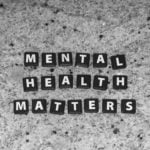As more women choose to start families later in life, the topic of geriatric pregnancy—defined as pregnancy occurring in women aged 35 and older—has become increasingly relevant. While many women in this age group successfully navigate pregnancy and childbirth, it is essential to understand the unique risks and considerations that accompany geriatric pregnancies. By being informed and proactive, older mothers can embrace motherhood with confidence.
One of the primary concerns for women over 35 is the increased risk of pregnancy-related complications. As women age, the likelihood of conditions such as gestational diabetes, hypertension, and preeclampsia rises. These conditions can have significant impacts on both maternal and fetal health, making it crucial for older expectant mothers to receive regular prenatal care. Early and frequent check-ups allow healthcare providers to monitor for any potential complications, ensuring that necessary interventions can be made promptly.
Another consideration for women in this age group is the heightened risk of chromosomal abnormalities in the fetus. Conditions such as Down syndrome become more prevalent with maternal age. Genetic testing is an essential tool in this regard. Non-invasive prenatal testing (NIPT) can provide valuable information about the risk of certain genetic conditions as early as the first trimester. If a risk is detected, further diagnostic testing, such as amniocentesis or chorionic villus sampling (CVS), can be performed to confirm or rule out genetic disorders. By understanding these risks and exploring testing options, women can make informed decisions that align with their family planning goals.
Finding the right fertility clinic is also a critical step for women over 35 who are looking to conceive. Fertility tends to decline with age, making it important to choose a clinic that specializes in treating older women. The best fertility clinics for women over 35 offer a range of services, including fertility assessments, assisted reproductive technologies like in vitro fertilization (IVF), and counseling on lifestyle factors that can affect fertility. An experienced fertility specialist can guide older women through the process of conception and help them understand their options based on their unique circumstances.
In addition to medical considerations, maintaining a healthy lifestyle plays a vital role in managing risks during pregnancy. Prenatal vitamins are especially important for older moms-to-be, as they provide essential nutrients that support fetal development and maternal health. Key vitamins and minerals, such as folic acid, iron, and calcium, can help reduce the risk of complications like neural tube defects and support overall pregnancy wellness. Women should consult their healthcare providers to determine the best prenatal vitamins for their specific needs.
Moreover, adopting healthy lifestyle habits can further mitigate risks associated with geriatric pregnancy. Regular exercise, a balanced diet rich in whole foods, and adequate hydration can enhance overall well-being and promote a healthy pregnancy. Additionally, managing stress through mindfulness practices, yoga, or other relaxation techniques can have positive effects on both physical and mental health.
Ultimately, pregnancy over 35 can be a rewarding journey filled with joy and fulfillment. While it comes with its set of challenges, being informed about the risks, seeking appropriate medical care, and embracing a healthy lifestyle can empower women to manage those risks effectively. By understanding the landscape of geriatric pregnancy and proactively addressing potential issues, women can confidently navigate this important chapter of their lives and embrace the joys of motherhood.














































